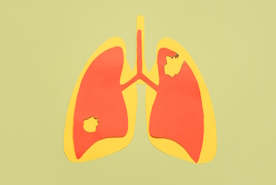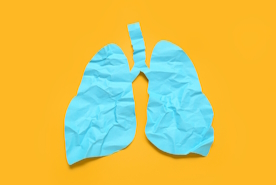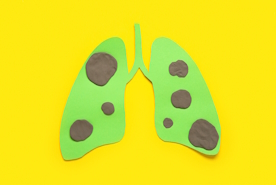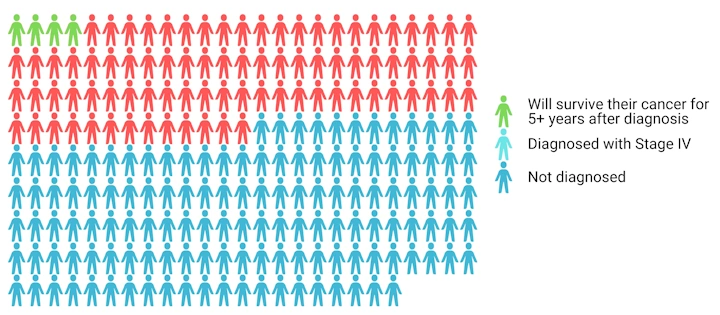
Call 0330 880 3600 Calls may be monitored or recorded. Opening Times.
- TRAVEL INSURANCE
- COVID-19 COVER
- More Options
- Help & Advice
- Existing Customers

Call 0330 880 3600 Calls may be monitored or recorded. Opening Times.




Lung cancer can affect anyone with lungs, and the main types are non-small cell carcinoma and small cell carcinoma. Non-small cell is more common and grows slowly, while small cell is less common but grows quickly. Lung cancer often goes unnoticed until it has spread, or metastasised, due to the lack of pain receptors in the lungs. This makes early detection pretty difficult, which is why charities and organisations promote regular screenings and information about signs and symptoms. In 2021, almost 40% of all lung cancer cases were discovered at Stage IV, which presents a 5% chance of survival for 5 years after diagnosis. Early detection is really important to spot lung cancer early, start treatment quickly, prevent the spread, and ultimately reduce the amount of lung cancer-related deaths.
Worldwide in 2020, there were 2.21 million new cases of lung cancer. If 40% of those are discovered at Stage IV, that’s 884,000 people. Of those 884,000, there is a 95% chance of fatality.

The biggest culprit of lung cancer is smoking tobacco, and it’s responsible for about 85% of all cases. The good news is that quitting smoking can massively lower your risk, and after 15 years of not smoking, your risk can be almost the same as a non-smoker. Besides smoking, other risk factors include exposure to secondhand smoke, radon, asbestos, hazardous chemicals, air pollution, and genetic predisposition.
Get Involved: Your time and money can make a huge difference by supporting those affected by lung cancer. Donations fund research into treatment discoveries, clinical trials, and innovative research projects, transforming funds into tangible advancements in lung cancer treatment and potentially finding a cure.
Share Your Story: If you are a caregiver or a patient, sharing your experiences can provide comfort and inspiration to others in similar situations. Personal stories raise awareness and foster a community of support.
Stay Informed: It’s also worth looking into the actual research which is taking place - take a look into the clinical trials taking place, and the work researchers are doing. Some are investigating why chemotherapy isn’t always a sustainable treatment, others are looking into improving pain control, and there are even vaccinations being trialled to help the immune system attack cancer cells.
World Lung Cancer Day is our chance to shine a light on this disease and the impact it has worldwide. By promoting early detection and supporting research, we can reduce the number of lives lost to lung cancer. Let’s come together, raise awareness, and support each other in the fight against lung cancer. Your involvement matters, and together, we can make a significant difference.
And don't forget, if you're planning to travel with pre-existing medical conditions (including cancer), we might be able to help you out with travel insurance. Click below to get started!
Get a Quote
BY HOLLY GARWOOD, 29TH JULY 2024
Sources:
Lung Cancer | World Health Organisation
Cancer in the UK - Overview 2024 | Cancer Research UK
Early Diagnosis Data Hub | Cancer Research UK
Survival for lung cancer | Cancer Research UK
Lung Cancer | Macmillan Cancer Support
Lung Cancer - Help for Patients, Caregivers | American Lung Association
Know your risk of getting lung cancer | Lungevity
GO2 for Lung Cancer